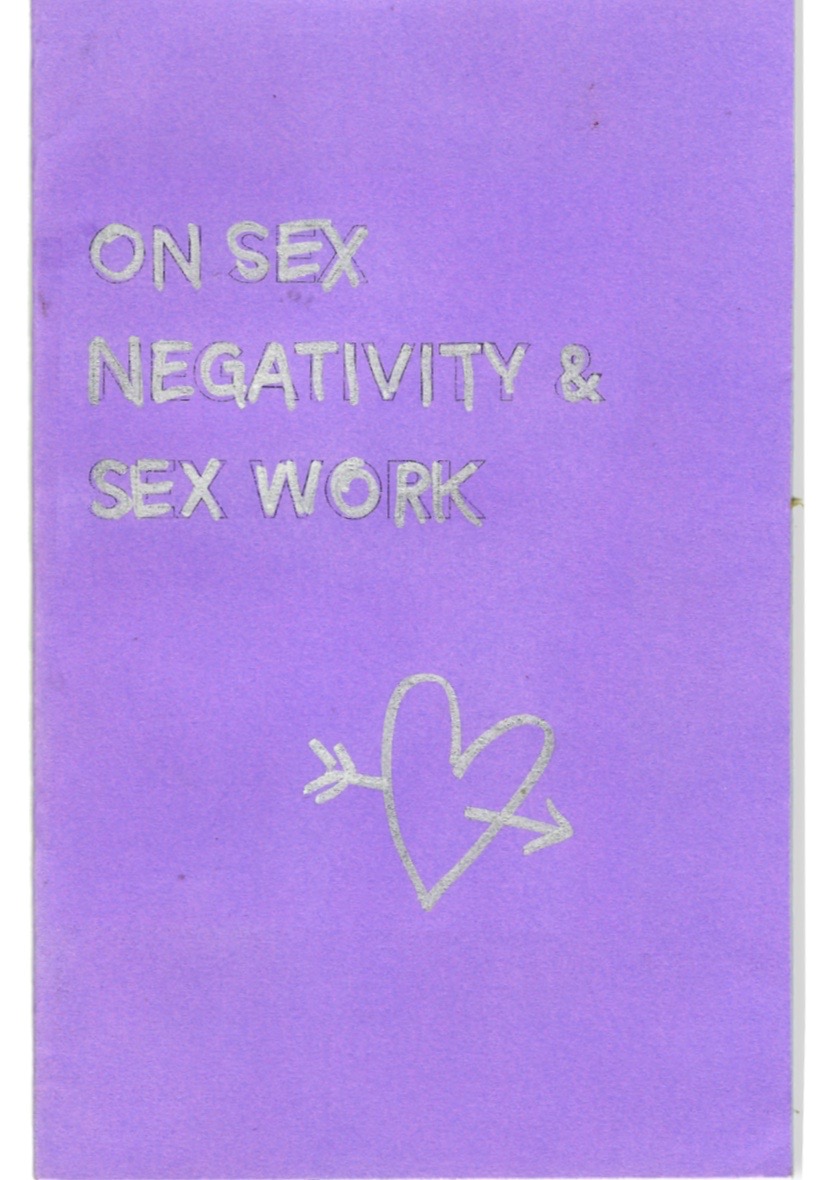Every issue, we invite artists, writers, DIYers and community members to offer a slice of their Zine Philosophy. This edition is by Louisa, an anarchist zinester and radio creator.

Read this zine and more at north-shore.info
1. Writing doesn’t come easily to me, but talking makes it easier. After years editing other people’s words, I used a talk I had given to publish my first solo zine, On Sex Work and Sex Negativity. This project felt more urgent and stimulating than any writing I had done for a long while, partially because I was working out some dense thoughts and emotions. It grapples with how doing sex work changed my understanding of sex with regard to labour, transaction, relationships and power.
2. The first anarchist zine I ever read was Betrayal: A Critical Analysis of Rape Culture in Anarchist Subcultures, an unusual and particularly intense introduction to anarchist culture. I remain committed to anarchism, and I held this zine dear for a long time. But only some pieces of it are still vital for me. I appreciate its reminders that anarchists have yet to cleanse our groups and personal lives of the patriarchal, capitalist and authoritarian social relations our politics are meant to oppose. There’s a benefit to identifying these enemies from within. We can attack back at power more effectively when we examine the webs of guilt, coercion and violence that bind us to forces of harm.
But Betrayal relies on an overly stark purity logic. I’m grateful it doesn’t resonate the same way for me now. Sure, I do wish radicals, maybe especially men, wouldn’t be so carelessly cavalier about sex. But I dislike the flat norm of exiling and abandoning accomplices wholesale when they cause any harm. Participating in collective struggle isn’t some reward for moral purity, or it shouldn’t be.
3. I’ve also been shaped by various YA trainwreck addiction memoirs about rich white girls (I won’t recommend any one, as each is uniquely problematic). First, they contained the rare, juicy truth that drugs might be more exciting than sex. The lurid and messy young womanhood on display also speaks to me. In that vein, I’ll add thanks to the Tumblr Dear Hussy by Bryn Kelly. This writing helped me elaborate my own deranged addict femininity more fully. Take this quote:
I want femmes at our worst. At our ugliest,
most selfish, most narcissistic, most histrionic,
most competitive, most needy … This is work about
the grittiness of a feminine emotional and intimate life.
I’m drawn to this ethic, not sex negativity but gender negativity — if I’m going to remain a woman in the world’s eyes, I must be permitted to hate it!
4. Doing community radio has made me better at saying what I mean — to focus on what people will hear me saying, rather than fret about how to capture complex and unfinished ideas. I’m typically interviewing people I know to some degree, or who don’t live too far from the station. That motivates me to not be totally full of shit.
Still, I’m wary of being a “journalist.” Building a personal brand by theorizing over other people’s revolutions feels exploitative. But covering different people and groups who are trying to get free in their own time and place can teach us, connect us and motivate us to do the same. Documenting struggle is not the same thing as living it — a humbling reminder to myself and everyone else.
Louisa is a zine-positive anarchist, community radio guy, and a presently off-again sex worker living near Lake Ontario.
